Alabama Democratic Party draft bylaws do not include disability caucus

Jemma Stephenson, Alabama Reflector A draft of new bylaws for the Alabama Democratic Party’s governing body restore almost all the diversity caucuses abolished by the party in May, but not one for people with disabilities. The new bylaws, ordered by the Democratic National Committee in October amid criticism of party leadership, must be voted on by Feb. 1. The bylaws, if approved, would restore caucuses for Hispanics, Native Americans, LGBTQ+ individuals, Asian and Pacific Islanders, and youth. Josh Raby, the chair of the party’s disability caucus prior to its abolition at the May 6 meeting, said in a phone interview last week that he was told they were removed from the bylaws because of an unclear definition of what a disability caucus is. “When I received the bylaws, my heart broke, literally, that a party that is supposed to be for the people was excluding people because they couldn’t find a definition of what a disability caucus is,” he said. Raby said that 23 other states have disability caucuses. He said he is sending those bylaws to Alabama Democratic Party chair Randy Kelley, Vice Chair for Minority Affairs Joe Reed, and others. Kelley told the Reflector in a Wednesday morning phone interview that the bylaws were still in draft form. He said he has not heard from membership about other concerns. “I can’t give you the complete update, but we are soliciting input now from the members,” he said. Reed said in a Wednesday morning interview that disability had a range of definitions. “We never had a disability caucus until two years ago when they created it a caucus and couldn’t define it,” he said. When asked why they did not use the definition used by the National Democratic Party, which has a disability caucus, Reed said “we are not required to have every caucus everybody in the world wants.” Reed said that many other states have much shorter bylaws than Alabama. He said that New Jersey’s bylaws are only nine pages. The New Jersey Democratic Party has a disability caucus, according to their website. An ongoing battle The state Democratic Party has been divided for years over representation of individual groups. In 2019, a faction of the party aligned with then-U.S. Sen. Doug Jones won control of the party and implemented DNC-ordered changes to create diversity caucuses representing the full range of groups supporting the state party. A faction of the party aligned with Reed, which included Kelley, objected to the new bylaws, arguing they deprived Black Democrats, who provide the party’s main support, of leadership of the state Democratic Party. Kelley won election as chair in August 2022. At a contentious meeting last May, the State Democratic Executive Committee (SDEC), the governing body of the party, voted to adopt new bylaws that abolished the new caucuses. Following complaints from membership, including Vice Chair Tabitha Isner, the DNC held hearings this fall and ordered the adoption of new bylaws. Raby said people with disabilities deserve a seat at the table. “Republicans should have a disability caucus, independents should have a disability caucus because we are the ones who are always left without a voice,” he said. “We are the ones who get ignored,” he said. Raby said that he believes those in the disability community have not had proper representation. “The people in the disability community want to be seen as being a part of this party and seeing that our voices are being heard. I don’t even think we’re being even respected within the DNC. I can’t even tell you who the chair is of the disability caucus for the DNC, but we got one, you know what I’m saying?” he said. “We got one. But in Alabama, we can’t even say we have one.” Isner said in a phone interview that she was not part of the drafting process and has concerns about the caucuses, but does not know if some of her concerns will be addressed in the final form of the bylaws. She said that not all of the caucuses have vice-chairs, and she wants to make sure that all groups have equal inclusion and access to input to the plan of affirmative action for inclusion in the party. “Certainly making sure that all groups are treated equally is critical to DNC’s policies and bylaws,” she said. The Young Voters Caucus and the Racial Minority Caucus have vice chairs, according to the draft. Kelly said he has been thinking about it and caucuses might not need vice-chairs. Reed says they are satisfied with their bylaws. Both Isner and Raby said the Democratic Party is intended to be for everyone. “It’s the Demo-freaking-cratic party,” Raby said. “We’re supposed to be the party for everyone. Not just some people, not just your friends, not just your buddies, but for everyone, and if you can’t be that, change the mission statement of your party.” Alabama Reflector is part of States Newsroom, a network of news bureaus supported by grants and a coalition of donors as a 501c(3) public charity. Alabama Reflector maintains editorial independence. Follow Alabama Reflector on Facebook and Twitter.
Delegate qualifying opens today
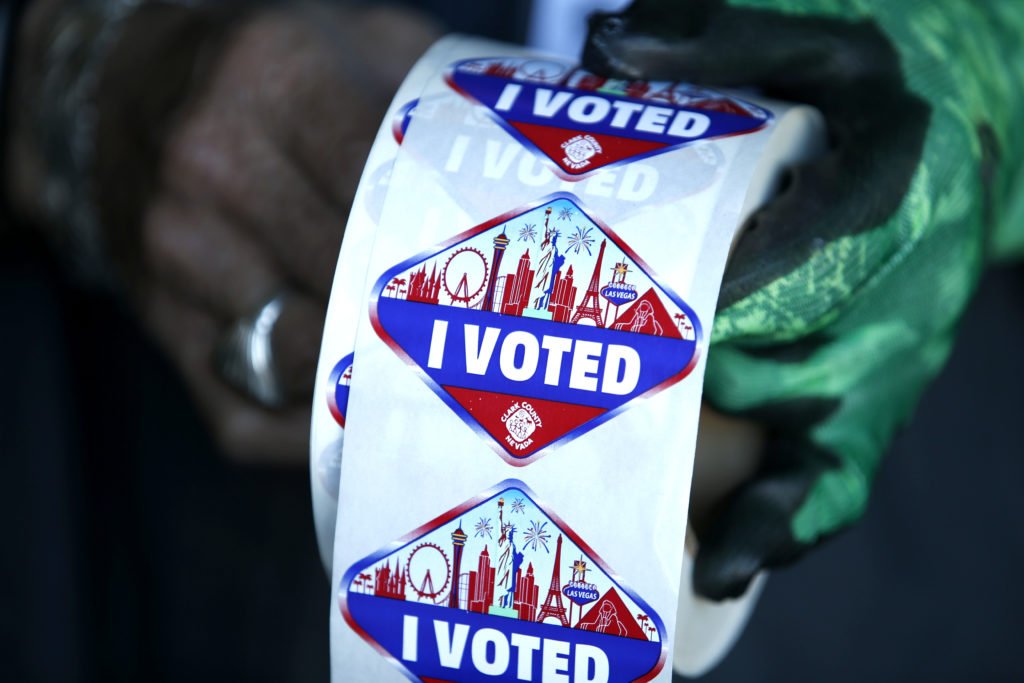
Both the Alabama Republican and Democratic Parties opened presidential delegate qualifying on Monday. The Alabama Republican Party also opened candidate qualifying on Monday, while Democrats have had their candidate qualifying open since September. Individuals interested in serving as delegates to the 2024 DNC Convention may submit a Declaration of Candidacy and pay the appropriate qualifying fees at the ADP Headquarters at 501 Adams Avenue, Montgomery, AL 36104) or online. Qualifying for both parties will close on Friday, November 10, 2023, at 5 p.m. CST, 116 days before the primary election, as required by Alabama Code § 17-13-5(a). Tom Miro, Executive Director of the Alabama Democratic Party, stated, “It’s a very exciting time for Democrats because we’re getting a new Congressional District. After discussions with Chair Randy Kelley, we want to ensure that our delegate selection abides by DNC rules and regulations. Delegates are apportioned by congressional districts; therefore, we decided to hold off on opening our delegate selection until we have a firm idea of what this new and competitive seat is to look like.” “The Alabama Republican Party is excited about the upcoming 2024 election cycle and working with all our candidates during the qualifying process,” said Republican Party Chairman John Wahl. “This is going to be an important election year with a lot at stake on both the national and local level. The Republican Party is proud to stand for the timeless principles of freedom and limited government that made our nation great, and we look forward to helping all of our candidates as they stand for these conservative values in 2024. We also have our eyes on the national level as the presidential race heats up. As a Super Tuesday state, our goal is to see Alabama play a key role in choosing the party’s nominee and to highlight the state of Alabama during this process. We’ve seen this with recent visits from America’s leading conservatives, and we plan to continue this effort as we get closer to the primary election. Running for office is a calling, and one which requires sacrifice and dedication. I want to thank each candidate that steps forward to run for office. I have such respect for anyone willing to put themselves out there in hopes of making a difference for the people of Alabama. I want each of them to know they have a friend in the ALGOP.” The Alabama Republican Party announced that people interested in running for office as a Republican or serving as a delegate at the Republican National Convention can file a declaration of candidacy and pay the appropriate fees in person at ALGOP Headquarters at 3505 Lorna Road in Hoover or online. “We are excited to work with candidates that stand for Democratic values and who will move Alabama forward.” “I would like to commend those who are seeking elected office and answering the call to serve others. Running for office is an endeavor that requires many sacrifices in a candidate’s life,” said Alabama Democratic Party Chairman Randy Kelley. “Your time and efforts will make a difference for the people of Alabama. The Alabama Democratic Party will be here to support our candidates and guide them to victory.” Candidates on the 2024 ballot include President of the United States, all seven U.S. House seats, several Alabama Supreme Court positions – including Chief Justice – Public Service Commission President, as well as seats on the Alabama State School Board, Courts of Criminal and Civil Appeals, Circuit Courts, District Courts, and all Circuit Clerk positions. To run for a position in county government, contact your local Republican or Democratic Party County Chairman. The major party primaries will take place on March 5, 2024. To connect with the author of this story or to comment, email brandonmreporter@gmail.com.
DNC gives Alabama Democrats February deadline to pass new bylaws
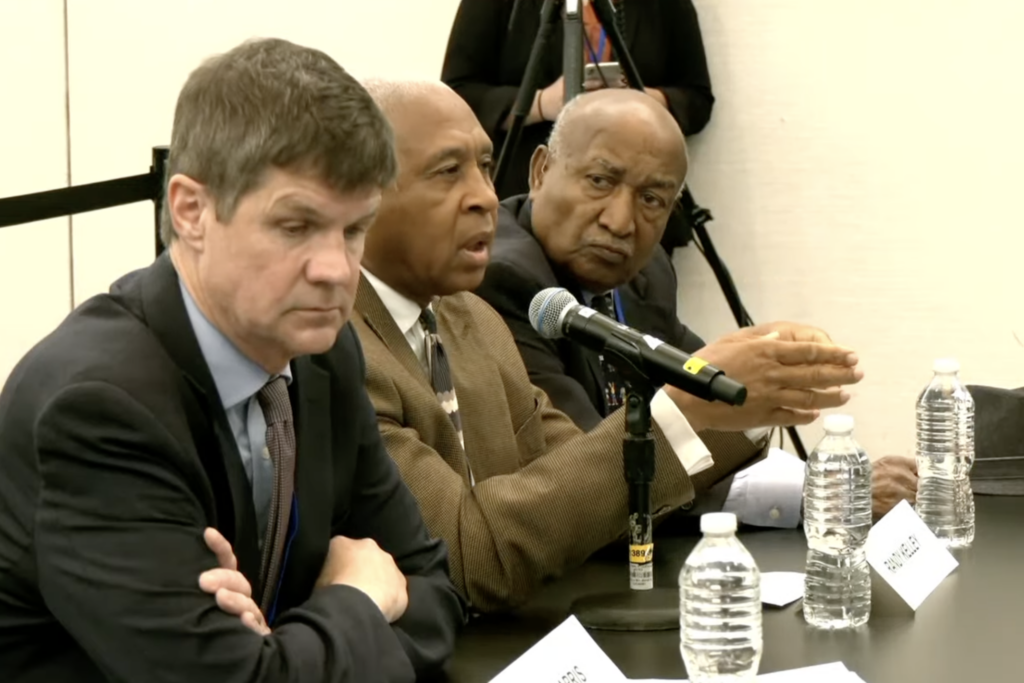
by Alander Rocha, Alabama Reflector The Democratic National Committee will give the Alabama Democratic Party a chance to resolve a divisive battle over the rules and governance of the state party on its own. The DNC’s Rules and Bylaws Committee (RBC) Friday gave ADP Chair Randy Kelley a November 28 deadline to develop new bylaws and provide the DNC a list of members of the State Democratic Executive Committee (SDEC), the party’s governing body. The RBC ordered the party to hold a vote on the bylaws by Feb. 1, 2024. A resolution authorizing the action added that the RBC may take necessary action to enforce the resolution, “including but not limited to the appointment of DNC representatives.” Kim Keenan, a lawyer charged with overseeing a Sept. 8 hearing on the party dispute, said the battles stemmed from longstanding issues of representation within the state party. “I like to say that what happened here is a perfect storm of the faraway past and the near past, basically colliding with the present,” she said. Ben Harris, an attorney and ADP’s vice chair for county affairs and a lawyer, said Kelley and Vice Chair for Minority Affairs Joe Reed were prepared to pass amended bylaws that “satisfied the DNC’s requirements,” with the at-large members who were previously denied a vote. He stressed that he feels it’s important that the party come to a voluntary agreement by working together. “We need the opportunity to reach that by agreement, and not by one side winning and one side losing. We’ve had too much of that,” Harris said. A controversial May meeting The ADC in May adopted a new set of bylaws that abolished three diversity caucuses set up under bylaws adopted by the party in 2019 and reduced the power of other diversity caucuses. The 2019 bylaws emerged after a fight between Reed and then-U.S. Sen. Doug Jones over control of the party. The DNC that year ordered the party to create caucuses reflecting the diversity of the state Democratic electorate. Reed’s group opposed the bylaws, saying they unfairly reduced the power of Black voters, who provide most of the Democratic support in the state. Kelley, a Reed ally, was elected chair of the party in August 2022. The May meeting was tumultuous, and members of the affected caucuses, some of whom are Black, sharply criticized the moves, saying they stripped key groups of representation. Another complaint came over a $50 qualifying fee charged by party officials to enter the meeting, which several SDEC members said they had not been informed about previously and which some called a poll tax. ADP members opposed to the new rules soon filed complaints with the DNC. Keenan said during the RBC hearing Friday she found two issues at the heart of the conflict between the two factions of the party. The qualifying fee, she said, was a barrier to participation in the May meeting, but she doesn’t believe it was imposed for “nefarious” reasons. “People on both sides had paid the fee, but unfortunately the fee didn’t have any rule support or any objective support,” Keenan said. “So in effect, it was alleged to be a poll tax, and it does follow what happens when you have a poll tax — you cannot participate unless you pay the fee.” She said that was the “fatal flaw” in the vote on the new bylaws. While requiring the fee may not have been ill-intentioned, Keenan said, denying participation is not consistent with DNC rules. Keenan also said she could not find anything in the existing bylaws to support the fee. “Preventing that number of people from participating was probably the difference between those May bylaws passing,” Keenan said. ‘A lot of self-determination’ Keenan also said that turning diversity caucuses — youth, LGBTQ+, Native American, disabled, and Hispanic — into committees while maintaining the Minority Caucus, representing Black Democrats, was an issue. “Caucuses have a lot of self-determination ability. They are able to do things. They are able to choose their members. They’re able to move forward in a way where they have determination over who their members are and whose appointed and who’s added,” Keenan said. “But once you become a committee, that right is delegated off to the Executive Committee.” ADP’s position, she said, stems from a “unique history where Black Alabama Democrats really had to sue, protest and be activistic to get the equity that they deserved in the party.” Hawthorne v. Baker, a 1990 case which allowed Black Democrats to have self-determination, a federal court said that unless a group meets the standard that Black Democrats met, they can’t be a caucus. “And I think that’s I think that that’s mixing an apple with an orange,” Keenan said. Kelley, who attended the Friday hearing, said during the meeting he wanted to “heal and move the party forward.” In an interview after the meeting, he said the resolution was reasonable, and that the meeting “came out as well as I thought it would.” “We don’t have a problem whatsoever with changing the bylaws,” Kelley said. Kelley added that he was pleased that the hearing report found what he referred to as misinformation regarding the $50 qualifying fee, which has been characterized as a poll tax. “It was a good forum to clarify that,” Kelley said, adding that it’s been in existence for at least 30 years. ADP Vice Chair Tabitha Isner, one of the challengers, said in a text after the meeting that she appreciates the DNC trying to find a solution that is collaborative. “The challengers have been fighting for a seat at the table, and the RBC has said that we must be granted one,” she wrote. “I look forward to hearing how the DNC intends to provide the necessary oversight to this process.” Reed, who was also in attendance, took a more forceful approach and said “this issue comes down to one fundamental issue and is rooted in racism.” “There’s nothing in Alabama we’ve
Three judge panel to meet today to consider Alabama congressional maps
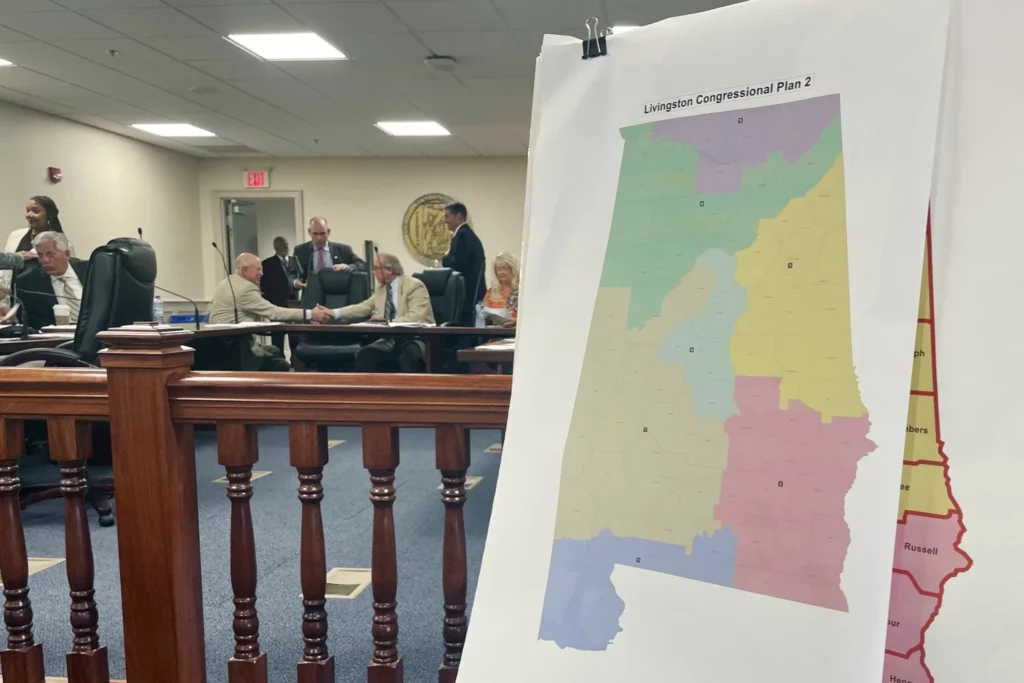
On Tuesday, a federal three-judge panel will meet to consider three Alabama congressional redistricting maps drawn by the court-appointed special master Richard Allen. The court appointed Allen after rejecting a map drawn by the Alabama Legislature in a July special session, which the judge said violates Section 2 of the Voting Rights Act of 1965. The court rejected a motion by Alabama Attorney General Steve Marshall to stay the proceeding while the State appeals. The U.S. Supreme Court has also rejected Marshall’s request for a stay. The three maps dramatically redraw Alabama’s Congressional Districts 1 and 2, putting Republican incumbents Jerry Carl and Barry Moore in the same districts. In the three plans, Congressional District 2 could have between 48.7% Black voters and 50.1%, depending on which plan the court approves. “We have an opportunity to elect a 2nd Democrat to the U.S. House, win state races, and re-elect President [Joe] Biden so that he may complete his historic agenda,” Alabama Democratic Party Chairman Randy Kelley said. “Alabama has benefited greatly from President Biden’s policies, including the Bipartisan Infrastructure Law, with over $3.2 billion allocated for roads, bridges, high-speed internet, and other major projects. We will do our part by winning seats for local, state, and national offices.” If one of these three maps is adopted, given the fact that over 80% of White Alabamians vote Republican and over 90% of Black Alabamians vote Democratic, this means that Democrats have a likely chance of winning Congressional District 2 in the 2024 election. The three maps comply with the three-judge panel’s order that the congressional redistricting map includes two majority-minority districts “or something close to it.” In 2021, the Alabama Legislature passed congressional redistricting that closely followed the existing seven congressional districts, which included one majority-minority district – the Seventh Congressional District. In 2022, the three-judge panel declared that the 2021 redistricting likely violated the Voting Rights Act of 1965 and ordered the Legislature to draw a new map. The state appealed to the Supreme Court, and the court stayed the order of the three-judge panel. In June, the Supreme Court ruled that the three-judge panel’s order had likely been right. In a 5 to 4 Supreme Court ruling, the Court remanded the case back to the three-judge panel who ordered the state legislature to prepare a new congressional redistricting map with two majority-minority districts “or something close to that.” In July, the Alabama Legislature met in a special session to consider redistricting. Instead of following the court’s orders, the Legislature merely increased the Black voting age population in CD2 from 30% to 39.9%. The three-judge panel accused the Legislature of defying the court and threw out the 2023 redistricting map. They then appointed a special master and ordered him to prepare new congressional redistricts for the state. He created three maps, all dividing Mobile County between Congressional District 1 and Congressional District 2 – something the Legislature claimed they could not do. Marshall has vowed to continue to appeal. To connect with the author of this story or to comment, email brandonmreporter@gmail.com.
Alabama Democratic Party opens candidate qualifying on Friday

The Alabama Democratic Party opened its candidate qualifying on Friday. Alabama Presidential Delegate qualifying will open on October 16, 2023, at 9:00 a.m. CDT. The big news this year is that Alabama’s Second Congressional District looks like it could be open as incumbent Republican Congressman Barry Moore (R-AL02) has been drawn out of his district by the court-appointed special master assigned to redistrict the state. Moore has said that he will wait before deciding what to do next. At present, he and GOP Congressman Jerry Carl now live in the First Congressional District. When Moore was re-elected in 2022, Congressional District 2 was 30% Black. The federal courts have ordered the state to draw a second Congressional District that is majority minority “or something close to it.’ The maps drawn by the special master have increased the Black voter percentage in the Second Congressional District to between 48.7% and 50.5%. This makes Congressional District 2 much friendlier for Democrats than it was previously. Austin Vigue has already announced that he is running for Congress in what now appears to be an open seat. In addition to the seven congressional seats, numerous county offices are on the ballot in 2024, including the Public Service Commission President, Chief Justice of the Supreme Court, Supreme Court Associate Justice, and other judicial seats. Candidate qualifying opened on September 29, 2023, at 9:00 a.m. CDT. Individuals interested in running for office as a Democrat or serving as a delegate to the Democratic National Convention may submit a Declaration of Candidacy and pay the appropriate qualifying fees at the Alabama Democratic Party Headquarters at 501 Adams Avenue, Montgomery, AL 36104, or online. Democratic candidate qualifying will close on Friday, November 10, 2023, at 5:00 p.m. CST, 116 days before the primary election, as required by Alabama Code § 17-13-5(a). “The 2024 Election Cycle is vital for Alabama Democrats,” said Alabama Democratic Party Chairman Randy Kelley. “We have an opportunity to elect a 2nd Democrat to the U.S. House, win state races, and re-elect President [Joe] Biden so that he may complete his historic agenda. Alabama has benefited greatly from President Biden’s policies, including the Bipartisan Infrastructure Law, with over $3.2 billion allocated for roads, bridges, high-speed internet, and other major projects. We will do our part by winning seats for local, state, and national offices.” “We are excited to work with candidates that stand for Democratic values and who will move Alabama forward,” Kelley continued. “I would like to commend those who are seeking elected office and answering the call to serve others. Running for office is an endeavor that requires many sacrifices in a candidate’s life. Your time and efforts will make a difference for the people of Alabama. The Alabama Democratic Party will be here to support our candidates and guide them to victory.” To connect with the author of this story or to comment, email brandonmreporter@gmail.com.
Alabama Democratic Party infighting case should be dismissed, national party tells judges

The Democratic National Committee asked a federal appeals court on Thursday to dismiss a case centered on Alabama party infighting that could test the requirements of the Voting Rights Act. The DNC argued that the lawsuit, which challenged 2019 bylaws establishing new diversity caucuses, is now moot since the state party is no longer operating under those bylaws. Longtime party official Randy Kelley, who lost his position as vice-chair during the 2019 power struggle, sued the DNC in 2021. Kelly asked a federal judge to declare that the 2019 bylaws violated the Voting Rights Act and a decades-old consent decree meant to ensure Black people are proportionately represented on the party’s executive committee. A judge dismissed the lawsuit, ruling that the state party could not be sued under the Voting Rights Act. But Kelley, who was elected party chairperson last year, appealed to the 11th Circuit. The lawsuit contends that the new bylaws, which added diversity caucuses for youths, disabled people, and LGBTQ+ and other Democratic voters, diluted the influence of Black committee members. In the motion to dismiss the appeal, the DNC argued that Kelley’s complaint is no longer relevant because the party enacted new bylaws in May that abolished some of the caucuses. However, the DNC said it is reviewing a complaint against the new 2023 bylaws. “To be sure, Alabama voters have raised concerns about whether the May 2023 Bylaws were properly enacted under the procedural rules of the SDECA (the state party) and whether the May 2023 Bylaws discriminate against certain minority groups in violation of Democratic Party rules,” lawyers for the DNC wrote. The case comes before the 11th Circuit after courts have recently weighed or dismantled some requirements of the landmark Voting Rights Act. The 11th Circuit in April upheld a Florida election law — tightening rules on mailed ballots, drop boxes, and other popular election methods — that a lower court had ruled was aimed at suppressing Black voters. The long-running struggle for control inside Alabama’s Democratic Party has pitted old-guard powerbrokers against a coalition unhappy with the party’s leadership and performance in the state. Republicans currently hold all statewide offices. The Democratic National Committee in 2019 directed the Alabama Democratic Party to update its bylaws to include diverse voices in party affairs. That led to creating new diversity caucuses. At its May meeting, the state party abolished some of those caucuses, with proponents arguing they were unneeded. Forty Alabama Democrats filed a complaint concerning the May meeting and bylaws adopted during it, indicating they wanted the DNC to review the issue. Republished with the permission of The Associated Press.
DNC members express alarm over Alabama Democratic Party changes

Members of the Democratic National Committee said Friday that they are concerned about the operations of the Alabama Democratic Party and the elimination of several caucuses intended to ensure a diversity of voices in party affairs. The comments at a meeting of the Democratic National Convention’s Rules and Bylaws Committee come amid an ongoing feud over state party leadership and the possibility that national officials might again intervene in the state party as they did four years ago. The Democratic National Committee in 2019 had directed the Alabama Democratic Party to update bylaws to provide representation of more minorities, not just African Americans, in party affairs. That led to the creation of minority caucuses to ensure representation of young voters, LTBTQ community members, and others. But the state party in May abolished some of those caucuses with proponents arguing they were unneeded. “We’re equally alarmed by the bylaws and the operational allegations which seem to prevent the full participation of members, if true,” said Minyon Moore, co-chair of the DNC’s Rules and Bylaws Committee. Yvette Lewis, a member of the Democratic National Convention’s Rules and Bylaws Committee who urged the 2019 changes, said she had a “broken heart” over the recent actions in Alabama because it is “as if we did nothing.” “Diversity and expanding the party works,” Lewis said. She said there is opportunity for Democrats in Alabama after the U.S. Supreme Court affirmed a lower-court ruling requiring the state to draw new congressional districts and create a second district where Black voters comprise a significant portion of the electorate. “We can break that stronghold in the South. … There are people down there that so share our values, that so much want to be a part of the Democratic Party. We owe it to them,” Lewis said. Randy Kelley, the chair of the Alabama Democratic Party, asserted that the new bylaws did not cut representation. He argued youth and LGBTQ voters in the state are proportionately represented. “No one lost any representation,” Kelley said. “We want to grow the party.” He said if the DNC attempts to intervene in Alabama that they are prepared to go to the hearings and “plead our case.” Republished with the permission of The Associated Press.
Democratic National Committee to review a complaint about Alabama party organization
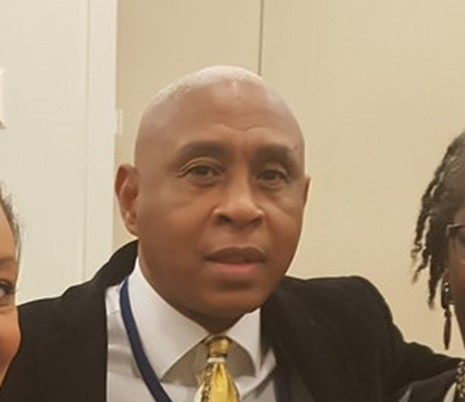
Democratic National Committee leaders on Saturday agreed to review concerns about how the Alabama Democratic Party operates, including its decision to eliminate several diversity caucuses. The DNC’s Executive Committee voted to refer “all pending and future challenges and complaints” about the matter to its Rules and Bylaws Committee, according to a document. The move came a day after members expressed alarm about the state party’s actions. The Democratic National Committee in 2019 directed the Alabama Democratic Party to update its bylaws to include diverse voices in party affairs. That led to creating diversity caucuses for young voters, LTBTQ community members, Hispanics, Native Americans, people with disabilities, and other groups. But at its May meeting, the state party abolished some of those caucuses, with proponents arguing they were unneeded or diluted the power of Black voters who make up the majority of the state’s Democratic electorate. Forty Alabama Democrats filed a complaint concerning the May meeting and bylaws adopted during it, indicating they wanted the DNC to review the issues if they weren’t resolved at the state level. Randy Kelley, chair of the Alabama Democratic Party, has maintained that the new bylaws did not cut representation. He said Friday that state party leaders were prepared to go to hearings and “plead our case” if the national party intervened. Republished with the permission of The Associated Press.
Alabama’s top ten stories in 2022

2022 is winding down. Now is a good time to look back on the year that was and remember the political news that impacted our lives here in Alabama. Katie Britt wins the Senate. Britt had never held a public office before, was not a self-made multi-millionaire with her own corporation, was not a war hero, and was not a household name. Yet the mom from Enterprise managed to put together a diverse band of supporters that included among its ranks both the rich and powerful and thousands of just everyday ordinary Alabama folks. Alabama does not change Senators very often. Richard Shelby, whom she replaces, spent the last 44 years in Congress. At age 40, Britt is young enough to potentially duplicate that feat. Republicans hold onto their supermajorities in the Alabama Legislature. The Alabama Legislature is nationally recognized as the most conservative legislature in the entire country. Republicans entered the 2022 election cycle with the daunting challenge of defending 77 seats in the Alabama House of Representatives and 27 seats in the Alabama Senate. Alabama voters showed that they liked what the legislature did in the last four years and will enter the new quadrennium with the same historic filibuster-proof majorities they had in the previous four years. Republicans in the legislature can work across the aisle in the spirit of bipartisan cooperation if they want to. They can also ram through whatever red-meat agenda items that the GOP wants. Alabama Democrats in the legislature can do little to stop them. Alabama prisons are still horrible. Alabama prisons are overcrowded, woefully understaffed, do a poor job of rehabilitating prisoners, and according to a report by the Department of Justice, are the most dangerous in the country. This has all been well documented. The only conclusion that is possible to reach is that the people of Alabama just don’t care how we treat our prisoners. The Bureau of Pardons and Paroles has been hesitant to release prisoners. The state has 70, 80, and even 100-year-old prisons housing far more prisoners than they were designed to hold. The state has had to suspend executions because of botched attempts in which the state failed in its efforts to kill the condemned man. The state is trying to hire more prison guards, and the Alabama Department of Corrections has begun work on building two new mega prisons in Elmore and Escambia Counties. Time will tell if these efforts will satisfy the federal government, which is suing the state because they believe our prisons are so wretched that incarceration in Alabama constitutes a “cruel and unusual punishment” in violation of the Eight Amendment of the Bill of Rights. Kay Ivey was re-elected as governor. Ivey entered 2022 as the oldest governor in the country and one of the most popular. Ivey was challenged by a self-made millionaire, a former governor’s son, successful businessmen, a mayor and former legislator, a prison guard and former county commissioner, and a conspiracy theorist preacher in the Republican primary. They all blasted Ivey’s tenure as governor and said they could do a better job. The voters ignored millions of dollars in negative ads, rumors about the governor’s health, and her refusal to debate, and Ivey won the GOP primary without a runoff. Ivey then faced a woefully underfunded Democrat, a Libertarian, and two write-in candidates. Seventeen people ran for governor in 2022, and Ivey coasted to re-election. The Alabama Democratic Party imploded. America has a two-party system. Democrats have a one-seat majority in the U.S. Senate, and Republicans have a slim majority in the U.S. House of Representatives. Democrats won the presidential election in 2020, and Republicans won in 2016. Either party could be in charge in 2024. The nation could not be more evenly divided – not so in Alabama. Every Republican nominee for a statewide office prevailed in Alabama’s 2022, and it was not even close. In fact, the Republican domination surprised no one as only one Democrat, Doug Jones in 2017, has won a statewide race since 2008. The Alabama Democratic Party (ADP) was hemorrhaging money so badly that the state director and most staff quit weeks before the election. ADP Chairman State Rep. Chris England announced leadership elections before the elections and that he was not running again. Randy Kelley, deposed with the blessing of the Democratic National Committee in a bizarre ADP power struggle in 2019 as vice chair, was elected Chairman of the ADP in August. The Joe Reed and Alabama Democratic Conference-supported Chairman found the party with no money, weak candidates, no donors, and no hope. The party was effectively steamrolled outside of majority-minority Black legislative districts. Alabama legislature passed permitless carry. Despite the best efforts of anti-gun groups and the Alabama Sheriffs Association, constitutional carry passed the Alabama Legislature in 2022. Every Alabamian who still has their gun rights will be able to carry their handguns concealed on their person or in their vehicle without purchasing a permit from their local sheriff starting Sunday, January 1. The concealed carry bill was the most controversial item to pass the legislature in 2022. State Rep. Shane Stringer and State Sen. Gerald Allen successfully carried that legislation to the finish line. Legal medical marijuana moved much closer to reality. The Alabama Medical Cannabis Commission passed rules and regulations for the new industry in 2022, and the deadline for persons to turn in an application to get a state of Alabama license to be a marijuana grower, processor, transporter, dispenser, or operate an integrated facility that does all of the above in house is on Friday, December 30. The Commission will award the licenses in June, and the first legally sold Alabama-raised marijuana will be available by late 2023. Financial strength prevailed in 2022. Unemployment is historically low, wages are rising, and the state is receiving record streams of tax money. In 2022 the state legislature passed record education trust fund and state general fund budgets for fiscal year 2023 and rolled hundreds of millions of dollars in surplus funds from fiscal year 2022 into FY2023. Not only is proration in the coming session not likely, but there is also the
Alabama Democrats praise Nancy Pelosi’s leadership
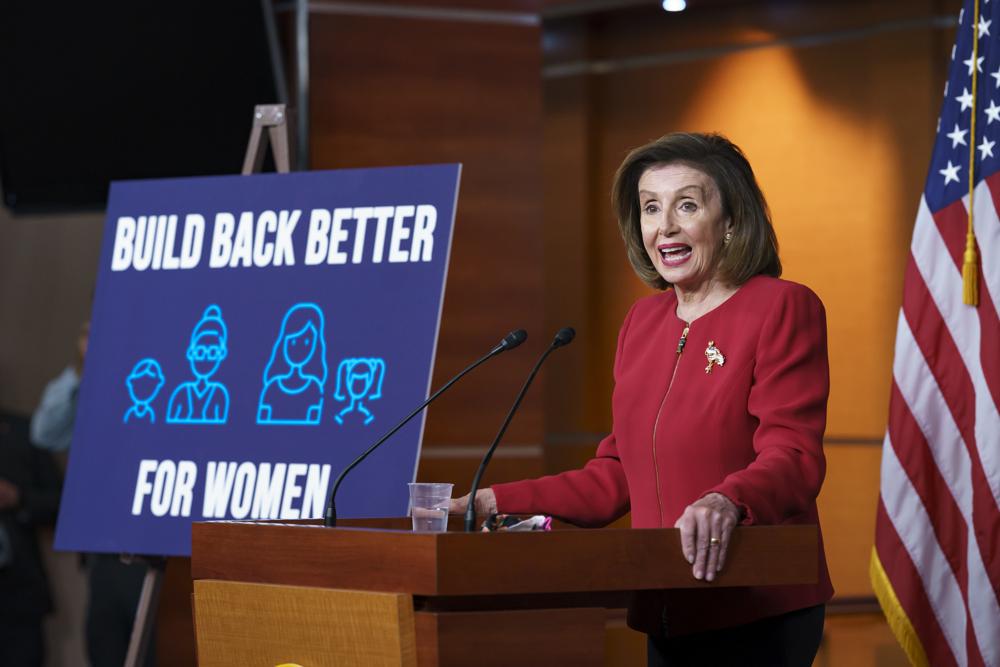
Speaker of the House Nancy Pelosi announced on Thursday that she will step down next year from her position leading the Democrats in the U.S. House of Representatives. Pelosi made the announcement the day after election results showing that Republicans will control the lower House of Congress once the new Congress convenes on January 3. Pelosi is stepping down from her top leadership role but will remain in Congress next year. “I will not seek reelection to Democratic leadership in the next Congress,” she said. “For me, the hour has come for a new generation to lead the Democratic caucus that I so deeply respect.” Alabama Democrats praised Pelosi’s leadership. Alabama Democratic Party Chairman Randy Kelley said that the move by Pelosi surprised him. “It really hit me hard,” Kelley told Alabama Today in a phone interview. “She has done a fantastic job. Whomever succeeds her will have big shoes to fill.” Congresswoman Terri Sewell praised Pelosi in a press release. “Speaker Nancy Pelosi is a true public servant whose tenure as Speaker of the House will be remembered as one of the most effective examples of leadership in modern history. For two decades, she has led the Democratic Caucus with dignity and grace, breaking down barriers for women and girls and putting the needs of the American people above all,” stated Sewell. “I have been honored to partner with Speaker Pelosi to advance the needs of Alabama’s 7th Congressional District, including our work to pass H.R. 4, the John R. Lewis Voting Rights Advancement Act,” Sewell continued. “While she will no longer lead our caucus, I have no doubt that Speaker Pelosi will remain a powerful force for good in our party and our nation. I look forward to continuing to serve alongside her.” Pelosi became Speaker of the House for the first time following the 2006 election. 2008 saw the election of Barack Obama to the presidency – giving Democrats control of both branches of Congress and the Presidency for the first time since 1994. Pelosi helped pass the Obama agenda, including the Affordable Care Act of 2010 – Obamacare. The Tea Party movement that arose to oppose Obamacare gave Republicans control of the House of Representatives in a massive “red wave” election in 2010. Despite the setback, Pelosi remained as the leader of the diminished House Democrats. In 2016 New York City billionaire Donald Trump won the Whitehouse, giving Republicans control of the government again. In 2018 Americans voted blue in large numbers giving Democrats control of the House again. Pelosi made history during the next two and a half years by impeaching Trump, not once but twice. In 2020 voters gave Democrats control of the Senate and elected Joe Biden over Trump. Pelosi helped Biden pass the CARES Act, the infrastructure bill, and the Inflation Reduction act. Despite this, or perhaps because of this legislative success, voters gave the GOP narrow control of the House of Representatives on November 8. Election results by November 16 showed that Republicans would indeed lead the House going forward and that a Republican – likely Rep. Kevin McCarthy – would be the next Speaker of the House. “She has done an exemplary job,” Kelley said. “She helped pass the infrastructure bill and the CARES Act.” The number two Democrat in the House – Rep. Steny Hoyer, is also stepping down from his leadership position, meaning there could be a wide-open contest on who will lead the Democrats moving forward. “I really have not gotten any idea who should fill that role,” Kelley said when asked who he felt should be the Democratic leader going forward. “I won’t get into trouble by naming somebody.” With Republicans now in control of the House, there is speculation that it might become more difficult for Biden to advance his agenda. “I think there is some (Republicans) who have done everything they could to stop his agenda,” Kelly said. “He has been very effective at passing his agenda, though.” Kelly said that the next two years will become essentially one long presidential campaign. “This is basically two years of campaigning for the President’s race in 2024,” Kelly said. “The Republicans will do everything they can to sabotage his presidency. The good news is that the Democrats held onto control of the Senate, and there certainly was no “red wave” as many of the prognosticators had predicted.” Pelosi’s husband, Paul Pelosi, is still recovering from a beating by an assailant with a hammer. Stepping down from leadership will allow her to spend more time with him as his recovery continues. To connect with the author of this story, or to comment, email brandonmreporter@gmail.com.
Libertarian Jimmy Blake says state needs to change ballot access law

On Friday, Jimmy Blake told Alabama Today that the State of Alabama has the most restrictive ballot access law in the country and that that needs to change. Blake was the Libertarian Party of Alabama nominee for governor in last week’s general election. On November 8, Blake received 45,823 votes – 3.25 percent of the votes cast – in his failed bid to be governor of Alabama. Kay Ivey was reelected to another term with 944,845 votes – 66.93% of the vote. Blake also was unable to achieve a high enough threshold for the Libertarian Party to have automatic ballot access in the 2024 election. “In 48 states, all but Kentucky and Alabama, I would have gotten enough votes for the party to have had ballot access,” Blake said. For a minor party to remain on the ballot in Alabama, one of its statewide candidates has to achieve 20% of the general election vote. Democratic nominee Yolanda Rochelle Flowers received just 29.16% of the vote in the governor’s race. That was the poorest showing for a Democratic gubernatorial candidate in Alabama history, down from Walt Maddox’s 40.4% just four years ago. None of the 65 Libertarian candidates on the ballot in last Tuesday’s general election were victorious. In the U.S. Senate race, Libertarian nominee John Sophocleus received just 2.32% of the vote (32,790 votes), and Democratic nominee Will Boyd received 30.87% (435,428 votes), while Republican Katie Britt received 66.64% (940,048 votes). Where Libertarians did best were in races where there was a Republican running but no Democrat. In the Lieutenant Governor’s race, Republican incumbent Will Ainsworth coasted to victory with 83.69% of the vote (955,372 votes). Still, with no Democrat in the race, his Libertarian opponent, Ruth Page Nelson, received 15.60% of the vote – 178,069 votes – still short of that 20% threshold required by Alabama state law. 1,411,756 people voted in the governor’s race, but only 1,141,507 votes in the Lieutenant Governor’s race, a drop off of 270,639 voters. Many of those voters who dropped off the ballot were Democrats who voted a straight-party ticket without making a preference in races where the Alabama Democratic Party failed to recruit a candidate. Candidate qualifying was over, and the ballot was set before new Democratic Party Chairman Randy Kelley was even elected. No Democrat won a statewide race on Tuesday. In fact, Doug Jones’s surprise victory over former Chief Justice Roy Moore in the 2017 special election for U.S. Senate is the only win for a Democrat in a statewide race in Alabama since 2008. The unlikely chance that a Democrat can win a statewide race in Alabama has made it extremely difficult for the Alabama Democratic Party to recruit candidates or for Democratic or non-Republican candidates to raise money. Where Libertarians came closest was in the race for Public Service Commission Place 2 race. There incumbent Republican Chip Beeker received 83.18% (929,248 votes), while Libertarian nominee Laura Lane received 16.05% (179,302 votes). “Laura Lane had enough votes for 49 states, even Kentucky, which has the second hardest ballot access at ten percent,” Blake said. The Libertarian candidates for PSC Place 1, State Auditor, and Commissioner of Agriculture and Industries all received over 14 percent of the vote in addition to Lane and Nelson. Blake said that Libertarians would be asking the Legislature to reform the state’s ballot access law. The last time the Libertarian Party of Alabama had ballot access was 2002. Then Sophocleus received more votes than the deciding margin between incumbent Democrat Don Siegelman and winner then-Congressman Bob Riley. Following that heavily contested race, the State Legislature changed Alabama’s ballot access laws to make it more difficult for minor parties to qualify for ballot access. The state requires a minor party or an independent candidate to turn in ballot access signatures of registered voters. To gain ballot access in this election cost the Libertarians over $240,000 and weeks of canvassing. The Party only completed the work in the days before the May 24 deadline. Without intervention by the Legislature or the court system, Libertarians will have to repeat that process if they hope to run statewide candidates in 2024. The 2024 election will include the statewide offices of President, PSC President, Alabama Supreme Court, and appellate judge. To connect with the author of this story, or to comment, email brandonmreporter@gmail.com.
Randy Kelley: Democrats have work to do after election showing
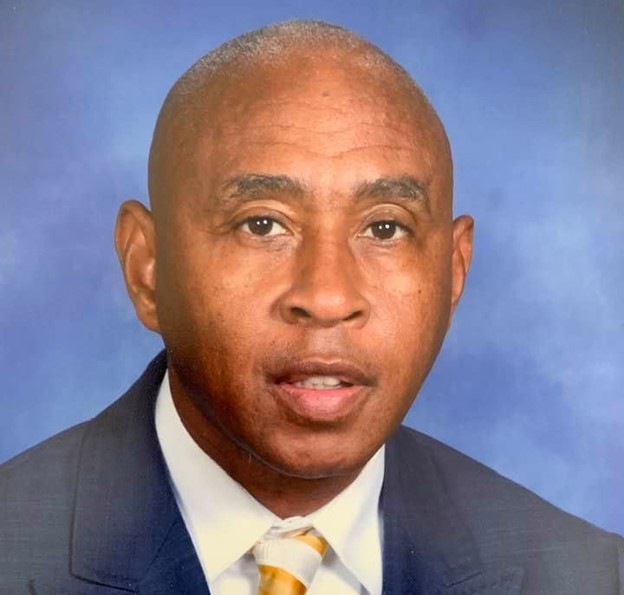
Alabama Democrats saw disappointing results in Tuesday’s election as the party continues to struggle to find its footing after the defeat of former U.S. Sen. Doug Jones. Democratic candidates in statewide races were held to about 30% of the vote on Tuesday, about 10 percentage points lower than four years ago, in an election noted for low voter turnout and a lack of competitive races at the top of the ticket “We’ve got to debrief, regroup and call our troops together. So, we’ll strategize and go on from here,” Alabama Democratic Party Chairman Randy Kelley said in a telephone interview. “I’m still optimistic despite being disappointed that our candidates didn’t win. We had some wonderful people running … But on the other hand, we’ve got some homework to do.” Voter turnout on Tuesday was an estimated 38.5%, according to unofficial returns. Democratic gubernatorial candidate Yolanda Flowers, who carried only 29% of the vote against Republican Gov. Kay Ivey after a poorly financed, shoestring campaign, said many voters didn’t realize her status as the first Black female to win a major party’s nomination for the office in Alabama. Speaking at a small gathering of supporters on election night, she told reporters some of the blame lies with the Alabama Democratic Party. “My team, they shared with me there was some hurt,” said Flowers, a longtime educator and political novice who made frequent mention of her Christian faith. “I wasn’t acknowledged as the candidate, the one to represent the state or the party.” Flowers said she received donations from some local Democratic groups, but her only real support from the state organization was contact with its vice chair, Tabitha Isner. Describing both the Democratic and Republican parties as “messed up,” Flowers said she plans to run for governor again in four years and won’t do anything differently. Her main purpose, she said, is “to keep God at the forefront.” The party has been through a power struggle in the past several years, as well as recent internal squabbling. Kelley this week sent party leaders a memo accusing Isner of overstepping her role. The Alabama Democratic Party’s Twitter account has been silent since August, when leadership changed hands. The party’s Youth Caucus wrote in a tweet this week that, “Alabama Democratic Party Leadership are fighting like 2-year-olds.” The Deep South was once the Solid South for the Democratic Party. But Alabama and other Southern states shifted to Republican control as white Southerners increasingly flocked to the GOP in a trend largely set in motion by the civil rights movement more than 50 years ago. Beleaguered Alabama Democrats were heartened by Jones’ 2017 victory in a special election. But the win did not translate to other gains. A slate of Democratic candidates were held to about 40% of the vote in 2018. Jones was defeated in 2020. Democrats on Tuesday were able to flip a legislative seat for the first time since 2010. Attorney Phillip Ensler defeated Republican incumbent Charlotte Meadows to win the Montgomery House seat. However, that win was tempered by the loss of longtime Democratic incumbent Dexter Grimsley to Republican challenger Rick Rehm in a southeast Alabama district. Both wins were aided by changes to district lines during the last redistricting process. Democratic hopes to pick up additional legislative seats did not materialize. Lisa Ward, who unsuccessfully challenged Republican incumbent Sen. Gerald Allen for the district that includes both the University of Alabama and rural west Alabama, said she remains optimistic. “You can’t give up because they say it’s a red state,” Ward said. She said she ran to bring attention to rural Alabama, and she said people in need don’t care about the party’s internal squabbles. “All they know is their water is brown, and they can’t pay rent, and their grocery tax is too high,” Ward said.


